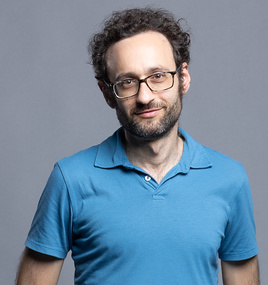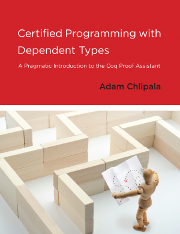Startup update: Nectry is my startup based on
Ur/Web and
UPO, with a "no-code" product that sets people across the business world free to build their own "enterprise-software" apps quickly, without knowing a thing about programming. It combines a tasteful component architecture in richly typed functional programming with a large-language-model AI frontend that makes "programming" like chatting with a person who is building your app while you watch. We're in the earliest stages of setting up pilots with customers, so pointers to potential enthusiastic early adopters are very welcome; and we may be able to hire more engineers soon to do work related to compilers, language design, and IDEs.
I'm interested in redeveloping the full stack of tools used by engineers to create hardware-software systems. My traditional areas are programming languages and formal methods (especially with the Coq proof assistant), but I often work on problems at the interfaces with cybersecurity, computer architecture, databases, and operating systems.
When I started as faculty, I didn't know what the heck people meant when asking about my advising style, but now I have some answers. My recruiting these days is mostly focused at the PhD level and below, though I might be persuaded to hire a postdoc with just the right match of expertise. Current MIT students (undergrad, MEng, PhD) interested in working together should e-mail me, while for others I suggest following our normal PhD application process.
For a bit more info on what I work on, two low-time-investment overviews (of the mechanized-proofs part) are my blog post on the surprising security benefits of formal proofs and video of a talk I gave at the 34th Chaos Communication Congress in December 2017.
Recommended Reading
I'm straying pretty off-topic here, but, especially for all the students who might be reading this far down the page, I'd like to recommend a few books that have had big influences on me and that I wish I'd been told about as a student.
- Everything we do in trying to debug problems in the world today depends on understanding how we and other people think, and I've found that evolutionary psychology provides a crucial toolbox for making sense of it all. As a general starting point, I recommend The Moral Animal.
- An important subtopic is the roots of the ideological differences that divide us, which lately seem to be especially hard to dislodge. The Righteous Mind explains how genes influence moral intuitions and makes a good case for not demonizing people with opposing intuitions. (And, straying even more off-topic, for a fascinating [but North-America-specific] take on regional culture as another source of differences, see American Nations.)
- Many of the choices we make have significant environmental consequences, and it's important to have a sound scientific basis for evaluating them. Sustainable Energy -- Without the Hot Air is a good source for the quantitative details. The most striking takeaway for me was, for my own carbon footprint, the total dominance of air travel, which is why it's super-cool that there is a SIGPLAN Climate Change committee now, to help us get this excessive conference-going under control. (I'm in favor of one conference per research area per year, with as many parallel tracks as needed!)
- One of the consequential kinds of choices we make is about what to eat.
- On the environmental-impact side, I have to admit I haven't found one book that summarizes the evidence and then makes recommendations without worrying too much about inertia and people's supposed unwillingness to change. Just Food is a start, though.
- The standard American diet also has huge problems for promoting good health. The best starter source of information there is How Not to Die.
- Our transportation customs (in the USA, at least) also have some remarkably bad but underappreciated consequences. Personally, I support dramatically curtailing use of vehicles that run on roads, in favor of much more walking and vehicles that run on rails, which are fundamentally more energy-efficient (as I learned in Without the Hot Air). For a fascinating analysis of the implicit subsidy on cars via legal minimum standards on parking spaces, see The High Cost of Free Parking.
- There's a lot of hand-wringing these days about how hard it is to "make it" financially starting as a student. That may very well be true, but for the elite audience likely to read this page, with strong skills in computing (broadly construed), things are pretty rosy. The challenge and opportunity is to reconsider norms about how much stuff we really want in our lives, and whether it is worth the cost in money, health, and whatever else. See the blog Mr. Money Mustache for a firehose of suggestions, or The Simple Path to Wealth for a gentler introduction.
- Finally, relatively on-topically, anyone out there who is into programming and hasn't yet tried proof assistants should seriously consider grabbing a good introduction like Software Foundations! This technology is going mainstream any year now, and in the mean time it's great fun and mental exercise, which I'd like to think prepares us for solid rational analysis of all sorts of big questions in the world.





